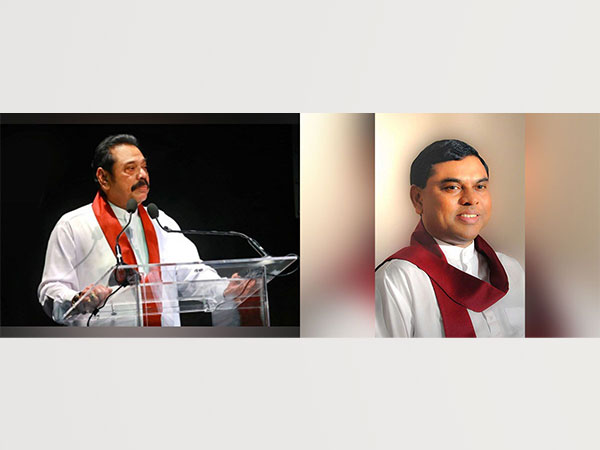
Colombo: Sri Lankan Supreme Court on Wednesday extended the travel ban imposed on the country's former Prime Minister Mahinda Rajapaksa and Basil Rajapaksa until September 5.
The Sri Lankan Supreme Court had earlier issued an interim order that prevented them from leaving the country without the court's permission until August 11. A motion had been filed in the Supreme Court seeking an overseas travel ban on Mahinda Rajapaksa, Basil Rajapaksa and former Governor of the Central Bank of Sri Lanka, Ajith Nivard Cabraal, Colombo Gazette reported.
The motion sought an investigation to be carried out against those individuals who are responsible for Sri Lanka's economic crisis, in line with a fundamental rights petition filed before the Supreme Court.
The fundamental rights petition was filed by a group including former Chairman of the Ceylon Chamber of Commerce (CCC) Chandra Jayaratne, former Sri Lanka swimming champion Julian Bolling, Jehan Kanagaratna and Transparency International Sri Lanka (TISL).
Meanwhile, Sri Lanka's Department of Immigration and Emigration has cancelled the Medical visa issued to the British citizen, Kayleigh Fraser who published content on social media regarding the Galle Face protest.
She has also been asked to leave the country before 15th August, reported News Wire.
On July 22, 2022, a large military group, along with the police, launched a raid near the Presidential Secretariat and the protest site at Galle Face to clear the area of protesters. Several arrests were made.
The armed soldiers were deployed in a bid to control the protestors who have been protesting against the new Sri Lankan President Ranil Wickremesinghe outside the premises of the Sri Lankan Presidential Secretariat. Protesters are alleging that security personnel raided the anti-government protest camp in the capital on early Friday.
With many Sri Lankans experiencing extreme shortages of essentials including food and fuel, peaceful protests began in March. The protests led then-Prime Minister Mahinda Rajapaksa to resign on May 9, and his brother, President Gotabaya Rajapaksa, to flee the country on July 13 and resign the following day.
Wickremasinghe became acting president, and parliament elected him as the new president on July 20 with the support of the Rajapaksas' political party, the Sri Lanka Podujana Peramuna.
Sri Lanka continues to face a severe shortage of fuel and other essential supplies and is in the throes of its worst-ever economic crisis with soaring inflation. The oil supply shortage has forced schools and government offices to close until further notice.
Reduced domestic agricultural production, lack of foreign exchange reserves, and local currency depreciation have fuelled the shortages.
The economic crisis will push many families into hunger and poverty - some for the first time - adding to the half a million people who the World Bank estimates have fallen below the poverty line because of the pandemic.